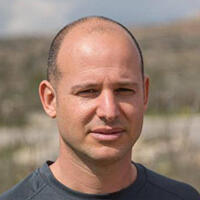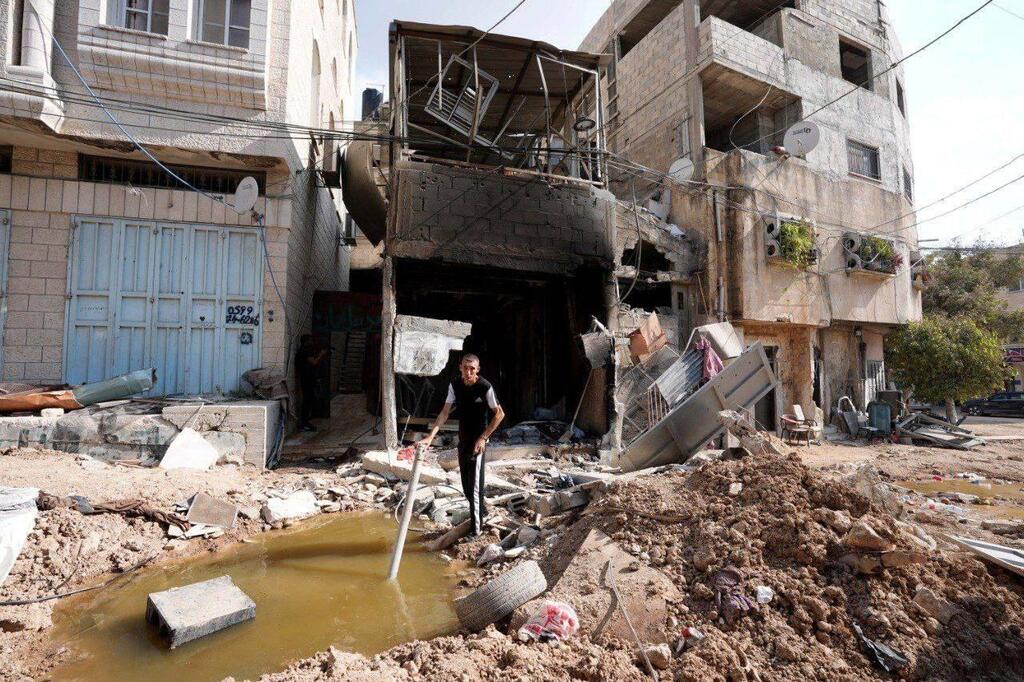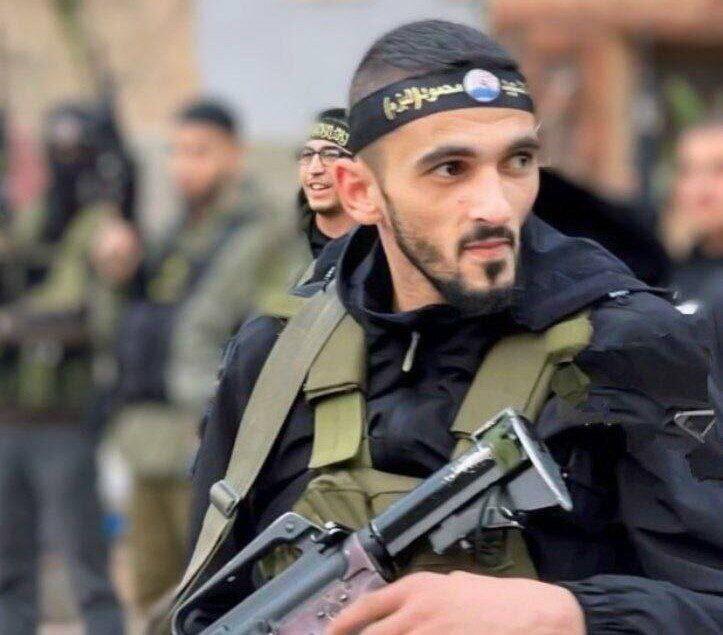Getting your Trinity Audio player ready...
Five days have passed since the IDF concluded its latest operation in the Nur Shams refugee camp in Tulkarm, during which several terrorists, including high-profile figures, were killed, and terror infrastructure was destroyed.
According to Israeli security assessments, the operation has been deemed effective, particularly after the elimination of Muhammad Jaber, also known as Abu Shujaa, who led the local terror network in Nur Shams. There now appears to be growing satisfaction within the camp.
IDF counterterrorism operation in Jenin and Nur Shams
(Video: IDF Spokesperson's Unit)
Jaber, once seen as a symbol of resistance in the camp, had caused significant harm to its residents. Security officials have observed that, since his death, many in the refugee camp have expressed a desire to reduce hostilities between Israeli forces and local gunmen.
Discussions on Palestinian social media platforms indicate increasing opposition to terrorist activities within the camp, including the planting of explosives and the use of civilian structures for terror purposes.
Within Palestinian society, particularly in the refugee camps, there is a growing perception that the Israeli military is nearing victory over the terror groups in Nur Shams and Tulkarm. This has led to a sense of uncertainty among residents, with many hoping that the Palestinian Authority will regain control and restore governance in the camp.
On Friday, the Palestinians witnessed the extent of the damage inflicted on the camp during the Israeli operation. According to local sources, over 150 homes were damaged, at least 30 significantly. Following the operation, Palestinian media has focused on the widespread damage and the lack of essential supplies. Reports suggest that around 30% of the camp's residents have fled in recent months.
Israeli security officials have highlighted a stark contrast between the popularity of terrorists on social media, particularly in the refugee camps, and the relatively low level of support they receive the people on the street. For terror organizations, social media plays a key role in glorifying terrorism, aiming to recruit young followers.
However, Abu Shujaa, who was killed last week, was a divisive figure in terms of support within the camp. Known for being relatively quiet, he often relied on spokespeople to deliver speeches at gatherings of armed terrorists.
The disparity between his social media clout and the situation on the ground was evident at his funeral in Tulkarm, which only around 200 people attended, including very few gunmen, likely due to fears of a confrontation with Israeli forces.
Jaber had been involved in numerous attacks, including the June 2023 killing of 67-year-old Amnon Mukhtar in Qalqilya. As the head of the local terror network, he commanded about 30 operatives. Last Wednesday evening, Israeli forces attempted to arrest him in Nur Shams, but the mission was aborted when it was discovered he was not at the target location.
Later that night, new intelligence revealed Jaber's whereabouts in a building near a mosque. Israeli forces surrounded the area, but Jaber refused to surrender and opened fire. The troops fired shoulder-launched missiles at the structure, and Jaber was eventually shot dead as he tried to flee. Two other terrorists were killed nearby, and Jaber's deputy later surrendered to Israeli authorities.
Also killed during the operation was Jibril Jibril, a 20-year-old from Qalqilya affiliated with Hamas' military wing, the Izz ad-Din al-Qassam Brigades. He had been released from Israeli prison in a hostage exchange deal with the terror group in November and became a wanted man shortly after, following several shooting attacks.








